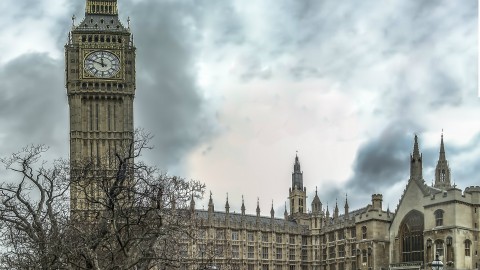-
Tips for becoming a good boxer - November 6, 2020
-
7 expert tips for making your hens night a memorable one - November 6, 2020
-
5 reasons to host your Christmas party on a cruise boat - November 6, 2020
-
What to do when you’re charged with a crime - November 6, 2020
-
Should you get one or multiple dogs? Here’s all you need to know - November 3, 2020
-
A Guide: How to Build Your Very Own Magic Mirror - February 14, 2019
-
Our Top Inspirational Baseball Stars - November 24, 2018
-
Five Tech Tools That Will Help You Turn Your Blog into a Business - November 24, 2018
-
How to Indulge on Vacation without Expanding Your Waist - November 9, 2018
-
5 Strategies for Businesses to Appeal to Today’s Increasingly Mobile-Crazed Customers - November 9, 2018
UK report urges social media companies to tackle extremism
Marie van der Zyl, Board of Deputies vice-president, said: “We reflect the concerns of the Home Affairs Select Committee that social media websites are becoming the “vehicle of choice” for spreading terrorist propaganda”.
Advertisement
“Huge corporations like Google, Facebook and Twitter, with their billion-dollar incomes, are consciously failing to tackle this threat and passing the buck by hiding behind their supranational legal status, despite knowing that their sites are being used by the instigators of terror”, said lawmaker Keith Vaz, a member of the opposition Labour Party, who heads the committee.
In the first-ever widespread criticism of USA technology giants and social media platforms, the British Home Affairs select committee has slammed the internet behemoths of becoming a “recruiting platform for terrorism” and “passing the buck”.
A panel of United Kingdom lawmakers has described as “alarming” that social networking companies like Facebook, Twitter and Google’s YouTube have teams of only a few hundred employees to monitor billions of accounts for extremist content.
The report urges the web giants to boost co-operation with law enforcement agencies and respond to account removal requests immediately – a request that echoes the recent allegations against Facebook by German officials over data requests.
IS has assembled a vast online propaganda machine, with figures previously revealing that a British police team is removing extremist content at a rate of almost 300 pieces every day.
The lawmakers’ accusations come after British authorities made a number of attempts to get Twitter posts and YouTube videos by radical Muslim preacher Anjem Choudary taken offline. His Twitter account, which had amassed 32,000 followers, is no longer visible. The committee also appeals to the companies to publish quarterly statistics showing how many sites they have banned.
A spokesman for YouTube, which is owned by Google, said: “We take our role in combating the spread of extremist material very seriously”. The company said in February that as other companies and experts have also noted, there isn’t a “magic algorithm” for identifying terrorist content on the Internet. Last week, Twitter said it had suspended 360,000 terrorist-related accounts since the middle of 2015. In addition to account suspension, its global Public Policy Team has expanded its partnership with organisations working to counter violent extremism (CVE) online.
“We’ll continue to work with government and law enforcement authorities to explore what more can be done to tackle radicalisation”.
Talking to the BBC, Simon Milner, director of policy for Facebook UK, said how the company had given extensive evidence to the Select Committee in regards to its counter-extremism strategy.
Social media companies are consciously failing to combat the use of their sites to promote terrorism and killings.
“We remove content that incites violence, terminate accounts run by terrorist organisations and respond to legal requests to remove content that breaks United Kingdom law”, the spokesman added. There must be a zero tolerance approach to online extremism, including enticement to join extremist groups or commit attacks of terror and any glorification of such activities.
“Our research has shown that the vast majority of ISIS recruits that have gone to Syria from Britain and other European countries were recruited mainly via peer-to-peer interaction, not through the internet alone”, said Mr. Neumann.
Ben Wallace, the security minister, said that internet companies must “play their part” in fighting extremism.
It added that anything that can not appear legally in the print or broadcast media, should also not be allowed on social media.
Advertisement
The current threat level for global terrorism is severe, meaning an attack is highly likely.




























